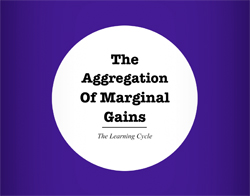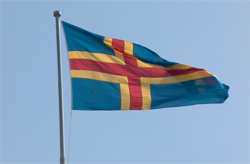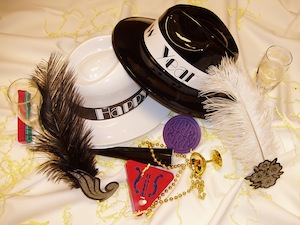
After watching ‘Road to Glory’, about the inexorable progress of the Sky Pro Cycling team, it foregrounded the mantra of “The Aggregation of Marginal Gains” that is at the core of David Brailsford’s philosophy.
In essence, it is the drive to perfect every controllable detail in the process of performance – the ‘marginal gains’ – with the result being a cumulative significant gain.
Watching Bradley Wiggins in the Tour de France, as well as the Great Britain cycling team in the 2012 Olympics was nothing short of inspirational – like most teachers it was considering how to harness the idea to make it useful in my teaching.

Curation has always been an important weapon in the arsenal of a student, but never before has it been easier to curate, gather, organise and collate information on topics. It is going to change the way in which we teach, and the way in which students learn and can access information.
Robin Good is bang on in his detailed article on the topic when he gives his ten reasons why curation is transforming the education landscape:

For many years the teaching profession has been familiar with the term ‘best practice’; sharing what is working well in one setting so that it might be implemented in another. It is happening within schools, between schools at conferences and TeachMeets, and online through both ‘top-down’ websites and ‘bottom up’ blogs from teachers.
Even the recent review of the English National Curriculum has been influenced by a comprehensive review of ‘best practice’ in different subjects from across the world (DfE, 2012). There is a problem with taking such practice at face value. The ‘best practice’ that is often held up is Finland due to the high levels achieved in international PISA league tables (OECD, 2009). However, when looking at international comparisons ’best practice’ is only part of the story. Practice in schools is coupled with the Finnish culture, which places a high value on academic achievement, and a high status for their teaching profession. How can we replicate Finnish achievement unless we take the complexities of Finnish culture and implant them on the English?

Year 6 child: ‘Miss, do you think God is real?’
Year 4 child: ‘Miss, what is the answer?’
Among the many useful pedagogical skills we can learn from the Ancient Greek philosopher Socrates, one of the most interesting is that of Socratic irony.
The Chambers dictionary says that Socratic irony is "a means by which a questioner pretends to know less than a respondent, when actually he knows more."
[Source: Wikipedia]
Zoe Williams, of the Guardian, says that "The technique [of Socratic irony], demonstrated in the Platonic dialogues, was to pretend ignorance and, more sneakily, to feign credence in your opponent's power of thought, in order to tie him in knots."

At the core of all drama is the concept of shared experience: of sharing thoughts, feelings, ideas, opinions and information. Drama also, by its very nature, encourages participants to explore personal and social issues and builds self-esteem. But drama is at its most effective when used in the primary classroom to support and enhance thinking and learning.
For example, when reading and discussing the traditional story of Goldilocks and the Three Bears, drama could be used to explore behaviour by placing certain characters from the story on the ‘hotseat’ – this can involve either the teacher or pupils working in role.

A community-driven platform for showcasing the latest innovations and voices in schools
Pioneer House
North Road
Ellesmere Port
CH65 1AD
United Kingdom